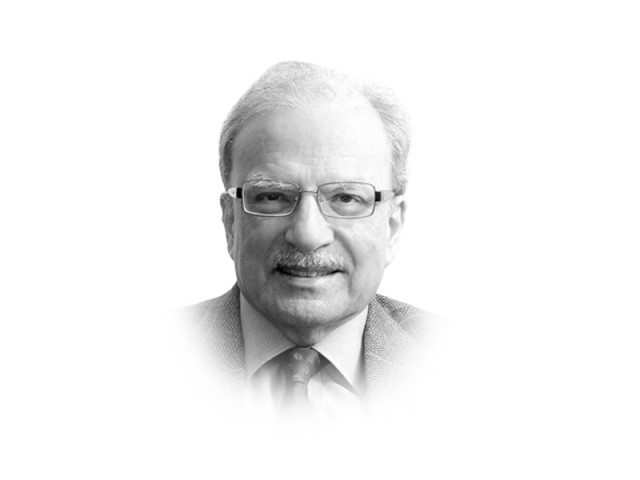Pakistan in search of external finance
In order to make the transition to a new growth paradigm, Pakistan will need foreign help but over the short-term.

The writer is a former caretaker finance minister and served as vice-president at the World Bank
The government headed by Prime Minister Mian Nawaz Sharif has followed the path travelled by previous administrations. It has been able to marshal an impressive amount of resources from multilateral institutions such as the International Monetary Fund (IMF), the World Bank and the Asian Development Bank. After the programme agreed with the IMF within a few weeks of coming into office, the Sharif government is injecting about half a billion dollars every three months into the government’s coffers. This flow will last for as long as Islamabad continues to satisfy the Fund that it is following the policy path the Washington-based institution has prescribed for Pakistan. The amounts being provided are sufficient for the country to service the loan acquired from the Fund by the previous government. For the time being the Fund is not adding new money into Pakistan.
The World Bank and the Asian Development have also indicated that they are prepared to provide significant amounts of resources to the country, most of it to finance a number of large infrastructure projects. Since Pakistan does not qualify to borrow from the International Bank for Reconstruction and Development (IBRD) for the moment the credits to it will come on very soft terms. This is highly welcome. Unlike borrowing from the IMF, the World Bank lending will not burden the country with large amounts of external debt. The same is true for the amounts coming in from several bilateral sources.
The Kingdom of Saudi Arabia has placed a deposit of US$1.5 billion in an entity, the Pakistan Development Fund, established by the government headed by President Asif Ali Zardari. It targeted a group of nations it identified as the ‘friends of Pakistan’, assuming it will be prepared to generously support an elected government and thus strengthen democracy in the country. That expectation was not met. In fact, a rapid deterioration of relations with the United States reduced the funds from that particular source.
Under Prime Minister Sharif, there has been a significant improvement in Pakistan’s relations with the United States. Moreover, Islamabad has made a concerted effort to get a significant amount of help from China in building a number of major infrastructure projects. Thrice, the country has been visited by senior leaders; twice by Prime Minister Sharif and once by his brother, Shahbaz Sharif. Newspaper reports have indicated Beijing’s willingness to provide tens of billions of dollars worth of project assistance. Islamabad has as yet to give an official account of exactly what the Chinese are providing, for which projects, and on what terms. Only then can an informed judgment be made about the benefits that will come from this flow of fund and what will be its long-term cost to the economy.
This approach to inundating the economy with funds from bilateral sources has been followed in the past, in particular by the governments that were dominated by the military. Altruism is not the only reason why rich countries give financial assistance to those who are relatively poor. Bilateral aid usually comes with often not very visible political strings attached. There are expectations from the recipients that democracies may not be able to fulfill. That may be the case with today’s Pakistan. Can the democratic Pakistan meet the donors’ expectations? Are there other ways of meeting the resource gap that is less politically encumbered? I will take up these questions next week.
Published in The Express Tribune, April 21st, 2014.
Like Opinion & Editorial on Facebook, follow @ETOpEd on Twitter to receive all updates on all our daily pieces.















COMMENTS
Comments are moderated and generally will be posted if they are on-topic and not abusive.
For more information, please see our Comments FAQ